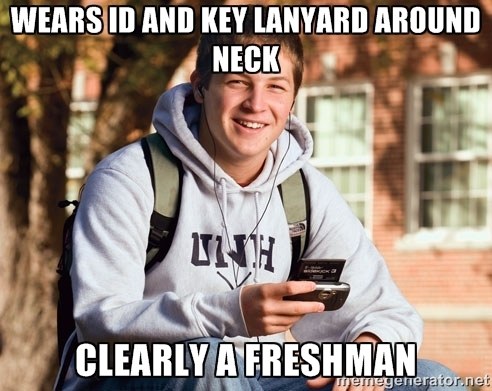
University is a big, fun place to be 10,000km away from your parents in your home country.
But you know what’s more fun than all the lack of parental supervision and parties without curfews? Being able to enjoy yourself with your new found friends armed with the knowledge of what to do if things go south.
We can’t plan everything or the accidents that may fall on us, but we can prepare ourselves by knowing what to do if anything happens.
While you’ll be able to handle minor scrapes and bruises on your own, leave the bigger problems to experts.
These are phone numbers you should imprint in your mind (they are usually listed in your welcome kit as well as your university’s website):
1. Warden/residence assistance

Losing or forgetting the key to your dorm is common. When this happens, don’t panic and try to break into your room on your own. Or try to MacGyver your way through. This is when you should call your warden or Residence Assistance personnel who will know what to do next.
2. Country emergency services
This one’s a no-brainer. In the US and Canada, the national emergency number is 911. In the UK, it’s 112 or 999. For Australia, it’s 000. These are the numbers you need to call if someone is in imminent danger, a crime is happening or if there is a serious traffic collision with potential injury to you or others on the road.
3. Campus security
On top of knowing your new country’s emergency numbers, you should know your campus’ as well, especially if you or your dorm’s security have been compromised.
4. Ambulance
https://twitter.com/GlynDavisVC/status/866779773858480128
Call this number if you have a medical emergency, examples include severe chest pain, severe difficulty breathing, severe loss of blood, burns and mental health crisis. If you are unsure if an ambulance is required, call your city’s (if you’re off-campus) or campus’ (if you are on campus) ambulance services, and they will advise.
For UK students, if you are ill in the evening or the weekend, call the National Health Service at 111 for 24/7 urgent health advice.
5. Mental health/counselling
For UPM students, here is the algorithm implemented by the university for mental health problems and suicide risks.
Shared by UPM MSC. pic.twitter.com/NgytsgUgDC
— gaks #VdMbulok (@psychokenetics) October 20, 2017
Transitioning into a new country and university life is tough. If you are having emotional difficulties, your school’s mental health or counselling centre is always more than willing to lend a helping ear.
Do not worry about being stigmatised or feel afraid to approach someone just because their designation bears the phrase “mental health” – everything you say will be kept confidential and they will ensure you are in a safe space.
Liked this? Then you’ll love these…
8 things that will definitely happen at your Freshers’ Week
Security boosted ahead of Ben Shapiro talk at University of Tennessee, Knoxville







